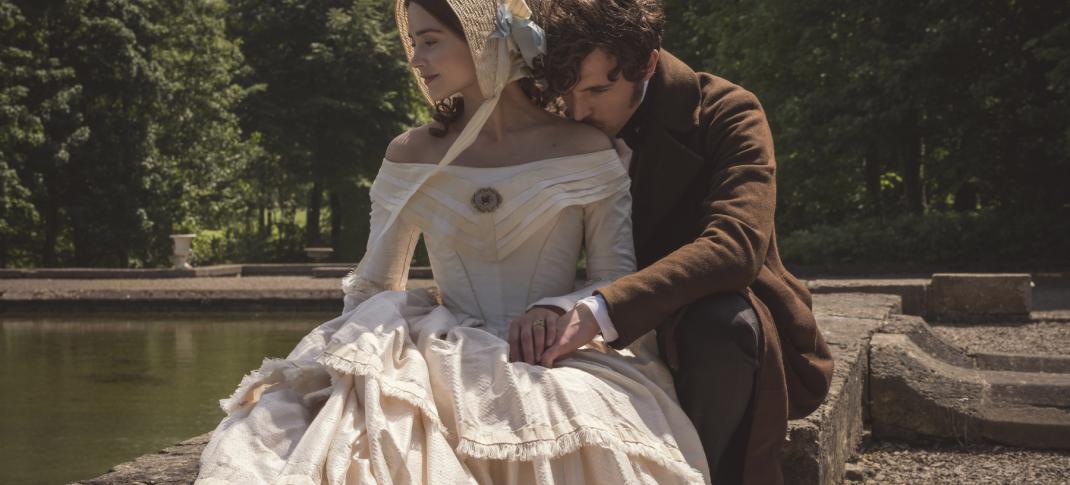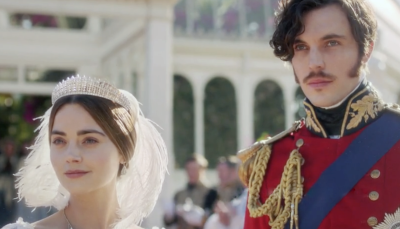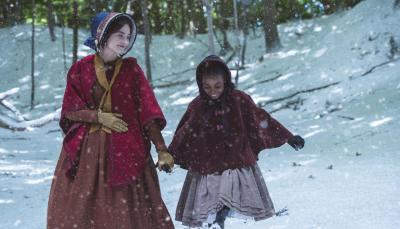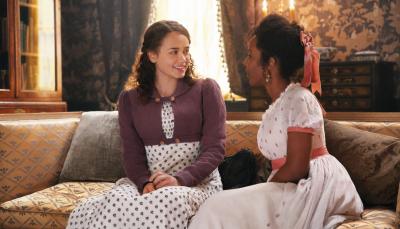Know Your 'Victoria' History: "Entente Cordiale"

Victoria, Season 2 MASTERPIECE on PBS Episode Three - "Entente Cordiale" Sunday, January 28, 2018 at 9pm ET Victoria decides to try her hand at foreign relations, and takes the royal court on an adventure to France, stepping toe to toe with the cunning King of the French, Louis Philippe. Shown from left to right: Jenna Coleman as Victoria and Tom Hughes as Albert For editorial use only. ©ITVStudios2017 for MASTERPIECE
GARETH GATRELL
Think you know the history of Queen Victoria's reign? Wondering how much of the history portrayed by PBS series Victoria is accurate? We run down the truth behind the drama in the latest episodes of Season 2, "Entente Cordiale."
Isabella II of Spain
Despite Victoria's declaration of "poor girl," Isabella had actually been queen far longer than our English monarch. She was declared sovereign upon the death of her father in 1833, at only three years old. That she is now 13 mean it's 1843, and denotes a time jump from last week's installment, which ended upon the birth of the future Edward VII, in November of 1841.
Isabella had already had a frightfully interesting reign, as for most of that decade her uncle, Ferdinand's brother Carlos, attempted to fight for the throne. Isabella only remained queen because of the Army being on her mother's side. So it is understandable that the moment she got anywhere near of age, there was a massive effort to have her engaged. As it was, it did not happen until 1846.
Did Victoria Visit France in 1843?
This trip did actually happen. Louis Philippe was the self-proclaimed "King of the French" from 1830 until 1848. (That title is due to his insistence after the July Revolution that his claim to the throne came via "populist demand.") As Peel says, the man was a wily one, as he got to the throne by being the leader of the Orléanist party, when his cousin, Charles X was forced to abdicate, and revolution that topped him failed. He himself had to abdicate after the February Revolution of 1848, when the people revolted again. Despite several unsuccessful claimants who tried to follow him, the monarchy was abolished. Still, he held on for 18 years, and did so partly by making friends with all sides, including Victoria's father.
Victoria visited Louis Philippe twice with Albert, once in 1843 and again in 1845. They really did stay at Château d'Eu in Normandy, and she really was the first monarch to visit since Henry VIII in the 1520s. When Louis returned the favor and visited Victoria in 1844, it was the first ever visit by a French monarch to the UK. It is not recorded if Victoria experimented with French fashions during her stay, but considering her age and the times, it's hard to imagine she didn't have at least a bit of fun while she was there. It is also not recorded if her first trip was to stave off what later became known as the "Affair of The Spanish Marriages," but it's a nice foreshadowing of that historical incident.
The title "Entente Cordiale" comes from a letter from British Foreign Secretary Lord Aberdeen, written in 1843, that "a cordial, good understanding" between the two nations had been achieved via her visit. That phrase was translated as "Entente Cordiale" and used by Louis Philippe in front of the French Chamber later that year. In 1904, when the French and UK signed their agreement to remain friends, ending nearly a century of intermittent conflict, it was officially called the "Entente Cordiale" agreement, referencing back to this moment.

Did France Renege On The Agreement?
If there was an informal agreement, France did go back on it, but not quite as quickly as the episode claims. As I noted above, Louis was in Victoria's good graces through 1845. In 1846 though, that changed. That was about the point where the populace began to sour on Louis Philippe as king, and in desperation to shore himself up with other monarchies, he helped embark on what became called The Affair of The Spanish Marriages. At sixteen, Isabella was married off, though not to the man of Louis Philippe's choosing. Her husband was her double-first cousin Francisco de Asís de Borbón, a Spanish duke, who it was later rumored was actually gay and did not father most of her twelve children. (Only five lived to adulthood.)
Louis got his son a wife though: Isabella's younger sister. Antoine d'Orléans, Duke of Montpensier married Infanta Luisa Fernanda. From there, once exiled in 1848, he attempted to take over the throne, going so far as to support the civil war faction against Isabella in 1868. While she was deposed, he did not get to become King. Instead, the First Spanish Republic began and voted in Amadeo of Savoy as their King. Though Antoine never fulfilled his father's ambitions for him, his daughter, Mercedes of Orléans, did become Queen of Spain after marrying King Alfonso XII.
Back in 1848, the damage was done though. Spain and France were tied together tightly, effectively breaking France's relationship with England. Even so, when the revolution came, Louis Philippe fled to England under the name of Mr. Smith, and Victoria allowed him to remain there. He lived out the last two years of his life in exile, dying in 1850.




